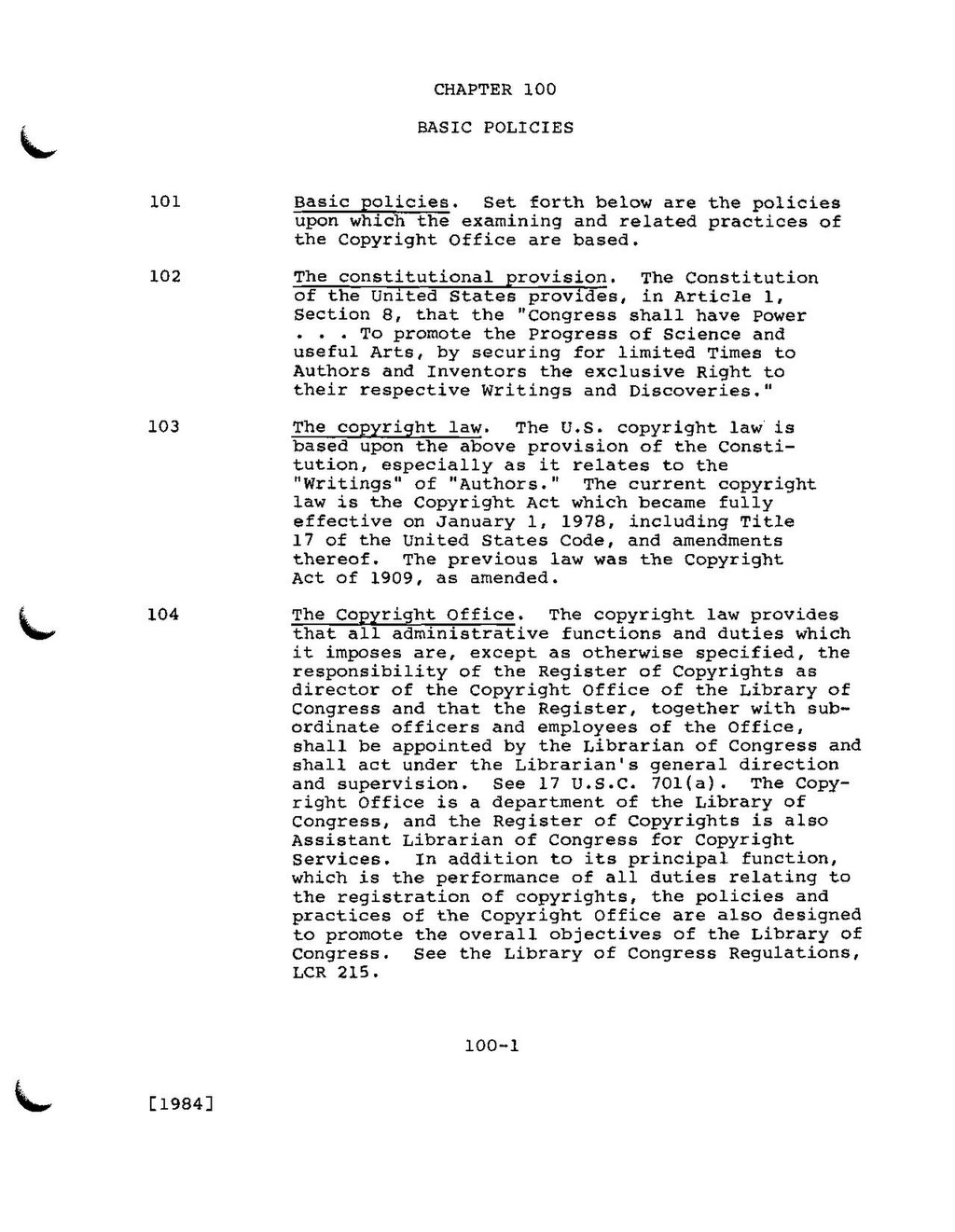CHAPTER 100
BASIC POLICIES
101
Basic policies. Set forth below are the policies upon which the examining and related practices of the Copyright Office are based.
102
The constitutional provision. The Constitution of the United States provides, in Article 1, Section 8, that the "Congress shall have Power ... To promote the Progress of Science and useful Arts, by securing for limited Times to Authors and Inventors the exclusive Right to their respective Writings and Discoveries."
103
The copyright law. The U.S. copyright law is based upon the above provision of the Constitution, especially as it relates to the "Writings" of "Authors." The current copyright law is the Copyright Act which became fully effective on January 1, 1978, including Title 17 of the United States Code, and amendments thereof. The previous law was the Copyright Act of 1909, as amended.
104
The Copyright Office. The copyright law provides that all administrative functions and duties which it imposes are, except as otherwise specified, the responsibility of the Register of Copyrights as director of the Copyright Office of the Library of Congress and that the Register, together with subordinate officers and employees of the Office, shall be appointed by the Librarian of Congress and shall act under the Librarian's general direction and supervision. See 17 U.S.C. 701(a}. The Copyright Office is a department of the Library of Congress, and the Register of Copyrights is also Assistant Librarian of Congress for Copyright Services. In addition to its principal function, which is the performance of all duties relating to the registration of copyrights, the policies and practices of the Copyright Office are also designed to promote the overall objectives of the Library of Congress. See the Library of Congress Regulations, LCR 215.
100-1
[1984]
